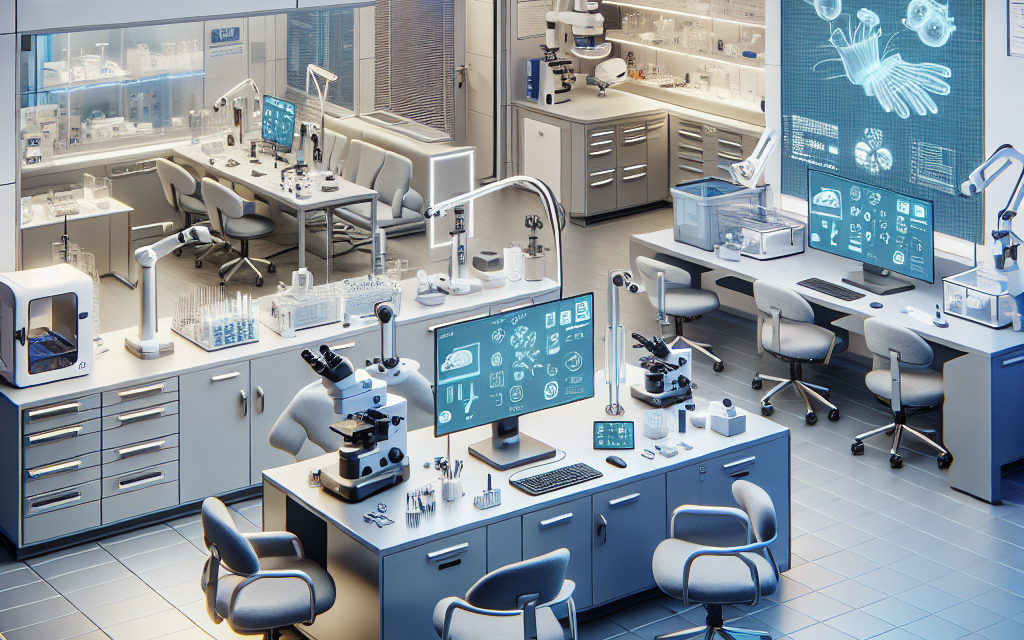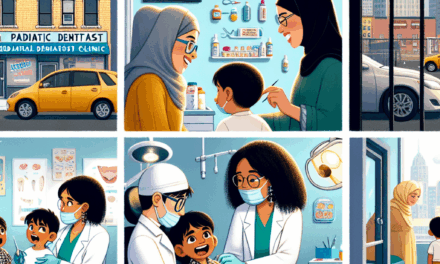Essential Lab for Advancing Medical Device Development: DOGEd
The medical device industry is a rapidly evolving field that plays a crucial role in healthcare innovation. As technology advances, the need for effective and efficient development processes becomes paramount. One of the key players in this arena is DOGEd, an essential lab dedicated to advancing medical device development. This article explores the significance of DOGEd, its methodologies, and its impact on the medical device landscape.
1. Understanding DOGEd: The Foundation of Medical Device Development
DOGEd, which stands for Development of Global Engineering Devices, is a specialized laboratory that focuses on the research, design, and testing of medical devices. Established to bridge the gap between innovative ideas and market-ready products, DOGEd serves as a hub for engineers, researchers, and healthcare professionals.
The foundation of DOGEd lies in its commitment to fostering collaboration among various stakeholders in the medical device ecosystem. This includes:
- Biomedical engineers
- Regulatory experts
- Healthcare providers
- Manufacturers
- Patients
By bringing together these diverse groups, DOGEd creates an environment conducive to innovation and problem-solving. The lab is equipped with state-of-the-art technology and resources that facilitate the entire development process, from concept to commercialization.
2. The Role of Research and Development in Medical Device Innovation
Research and development (R&D) is at the heart of medical device innovation. DOGEd emphasizes the importance of R&D in creating devices that meet the needs of patients and healthcare providers. The lab employs a systematic approach to R&D, which includes:
- Identifying unmet clinical needs
- Conducting feasibility studies
- Prototyping and iterative testing
- Regulatory compliance and validation
- Market analysis and commercialization strategies
One of the key aspects of DOGEd’s R&D process is its focus on identifying unmet clinical needs. This involves engaging with healthcare professionals and patients to understand their challenges and requirements. For instance, a recent study conducted by DOGEd identified a significant need for more effective wound care devices. In response, the lab developed a novel dressing that incorporates antimicrobial properties, significantly reducing infection rates.
Furthermore, DOGEd employs advanced prototyping techniques, such as 3D printing and computer-aided design (CAD), to create functional models of medical devices. This allows for rapid iteration and testing, enabling engineers to refine their designs based on real-world feedback. The lab’s commitment to rigorous testing ensures that devices not only meet regulatory standards but also provide tangible benefits to patients.
3. Regulatory Compliance: Navigating the Complex Landscape
One of the most significant challenges in medical device development is navigating the complex regulatory landscape. DOGEd recognizes the importance of compliance with regulations set forth by agencies such as the U.S. Food and Drug Administration (FDA) and the European Medicines Agency (EMA).
The lab employs a team of regulatory experts who work closely with developers to ensure that all devices meet the necessary safety and efficacy standards. This includes:
- Preparing pre-market submissions
- Conducting clinical trials
- Maintaining quality management systems
- Implementing post-market surveillance
For example, when developing a new cardiac monitoring device, DOGEd’s regulatory team guided the developers through the FDA’s 510(k) submission process. This involved extensive documentation, including clinical data and risk assessments, to demonstrate that the device was safe and effective. As a result, the device received approval in a timely manner, allowing it to reach the market faster.
Moreover, DOGEd emphasizes the importance of post-market surveillance to monitor the performance of devices once they are in use. This proactive approach helps identify potential issues early, ensuring that any necessary modifications can be made to enhance patient safety and device efficacy.
4. Collaboration and Partnerships: Driving Innovation Forward
Collaboration is a cornerstone of DOGEd’s approach to medical device development. The lab actively seeks partnerships with academic institutions, industry leaders, and healthcare organizations to foster innovation and share knowledge. These collaborations often lead to groundbreaking advancements in medical technology.
One notable example is DOGEd’s partnership with a leading university to develop a next-generation insulin delivery system. By leveraging the university’s expertise in biomedical engineering and DOGEd’s resources, the team was able to create a device that significantly improves patient adherence to diabetes management protocols.
Additionally, DOGEd collaborates with healthcare providers to conduct clinical trials and gather real-world data on device performance. This feedback loop is invaluable for refining designs and ensuring that products meet the needs of end-users. The lab also engages with patients to understand their experiences and preferences, which informs the design process.
Through these collaborative efforts, DOGEd has established itself as a leader in medical device innovation, consistently delivering products that improve patient outcomes and enhance the quality of care.
5. Future Trends in Medical Device Development: The Role of DOGEd
The medical device industry is poised for significant growth in the coming years, driven by advancements in technology and an increasing focus on personalized medicine. DOGEd is at the forefront of these trends, continually adapting its methodologies to meet the evolving needs of the healthcare landscape.
Some key trends shaping the future of medical device development include:
- Integration of artificial intelligence (AI) and machine learning
- Wearable health technology
- Telemedicine and remote monitoring
- Personalized medicine and targeted therapies
- Sustainability and eco-friendly design
For instance, DOGEd is exploring the integration of AI into medical devices to enhance diagnostic capabilities and improve patient outcomes. By analyzing vast amounts of data, AI algorithms can identify patterns and provide insights that were previously unattainable. This technology has the potential to revolutionize fields such as radiology and pathology, enabling faster and more accurate diagnoses.
Moreover, the rise of wearable health technology presents new opportunities for DOGEd to develop devices that empower patients to take control of their health. From smartwatches that monitor vital signs to continuous glucose monitors for diabetes management, these innovations are transforming the way patients interact with their healthcare.
As telemedicine continues to gain traction, DOGEd is also focusing on developing devices that facilitate remote monitoring and virtual consultations. This shift not only improves access to care but also enhances patient engagement and adherence to treatment plans.
Conclusion: The Impact of DOGEd on Medical Device Development
In conclusion, DOGEd plays a vital role in advancing medical device development through its commitment to research, regulatory compliance, collaboration, and innovation. By fostering an environment that encourages collaboration among diverse stakeholders, DOGEd is able to create devices that address unmet clinical needs and improve patient outcomes.
The lab’s systematic approach to R&D, coupled with its expertise in navigating regulatory challenges, positions it as a leader in the medical device industry. As technology continues to evolve, DOGEd remains dedicated to staying at the forefront of innovation, ensuring that it can meet the demands of an ever-changing healthcare landscape.
Ultimately, the work being done at DOGEd not only advances medical technology but also has a profound impact on the lives of patients and healthcare providers alike. As we look to the future, the contributions of DOGEd will undoubtedly shape the next generation of medical devices, paving the way for a healthier tomorrow.





